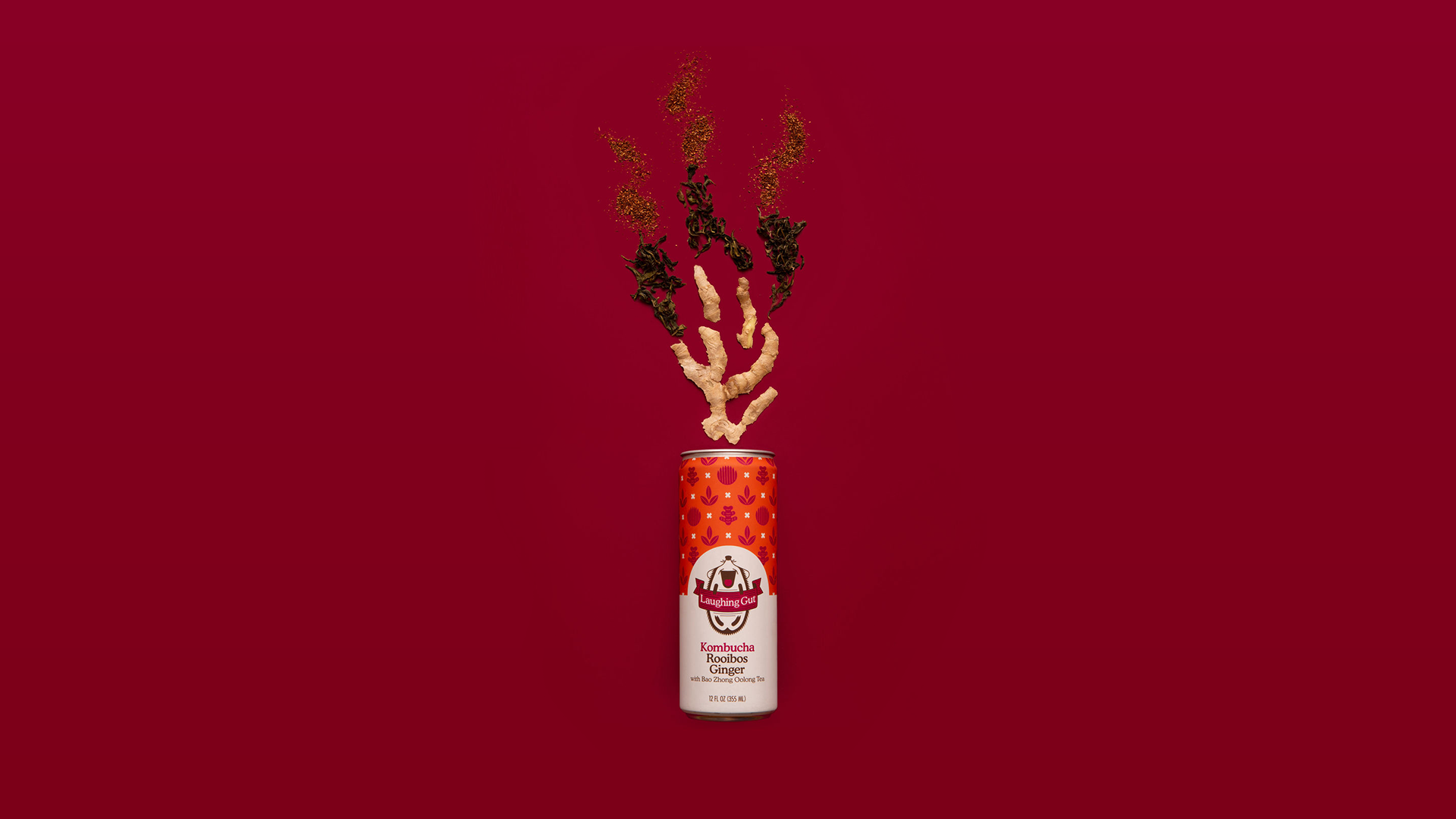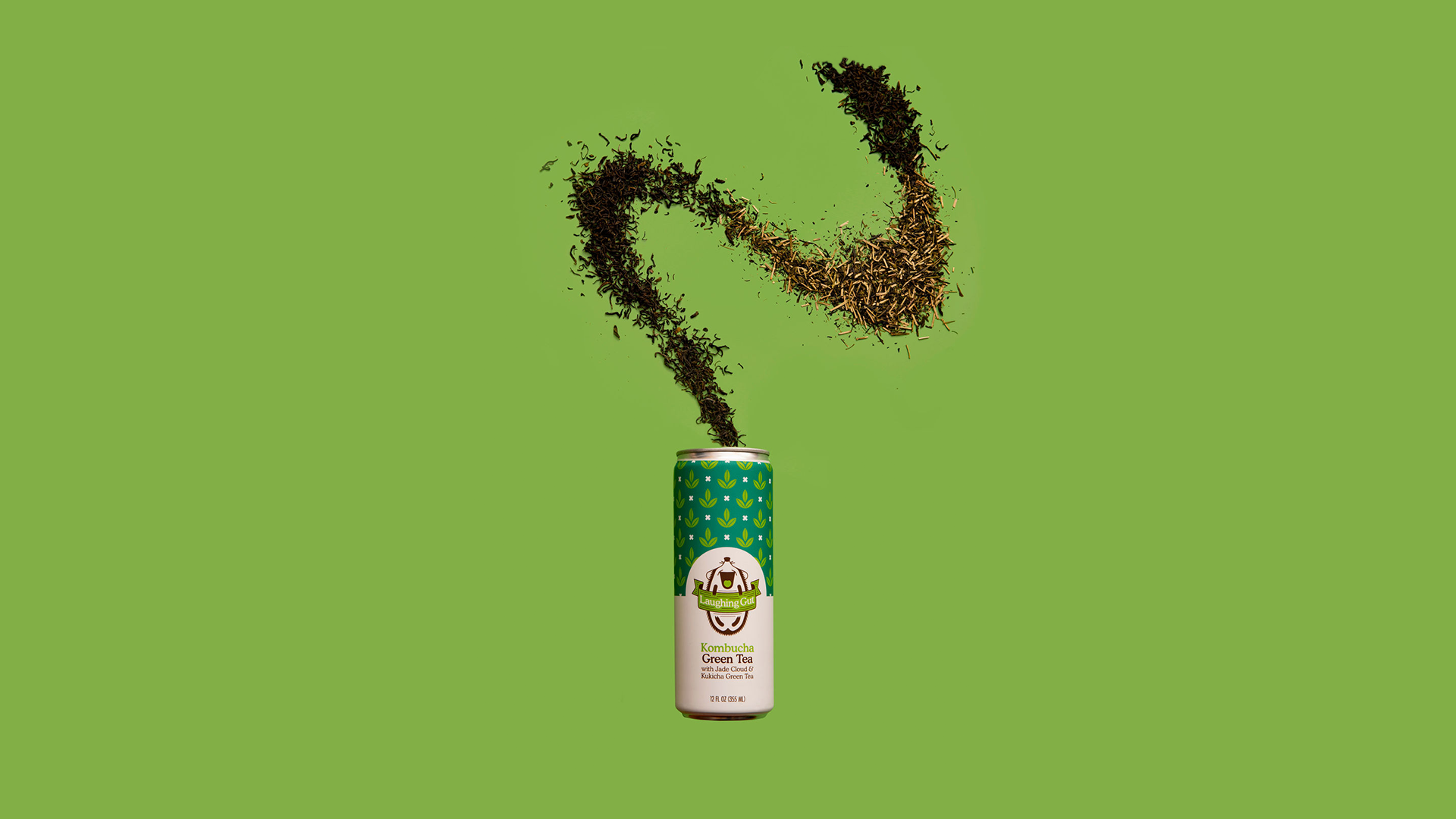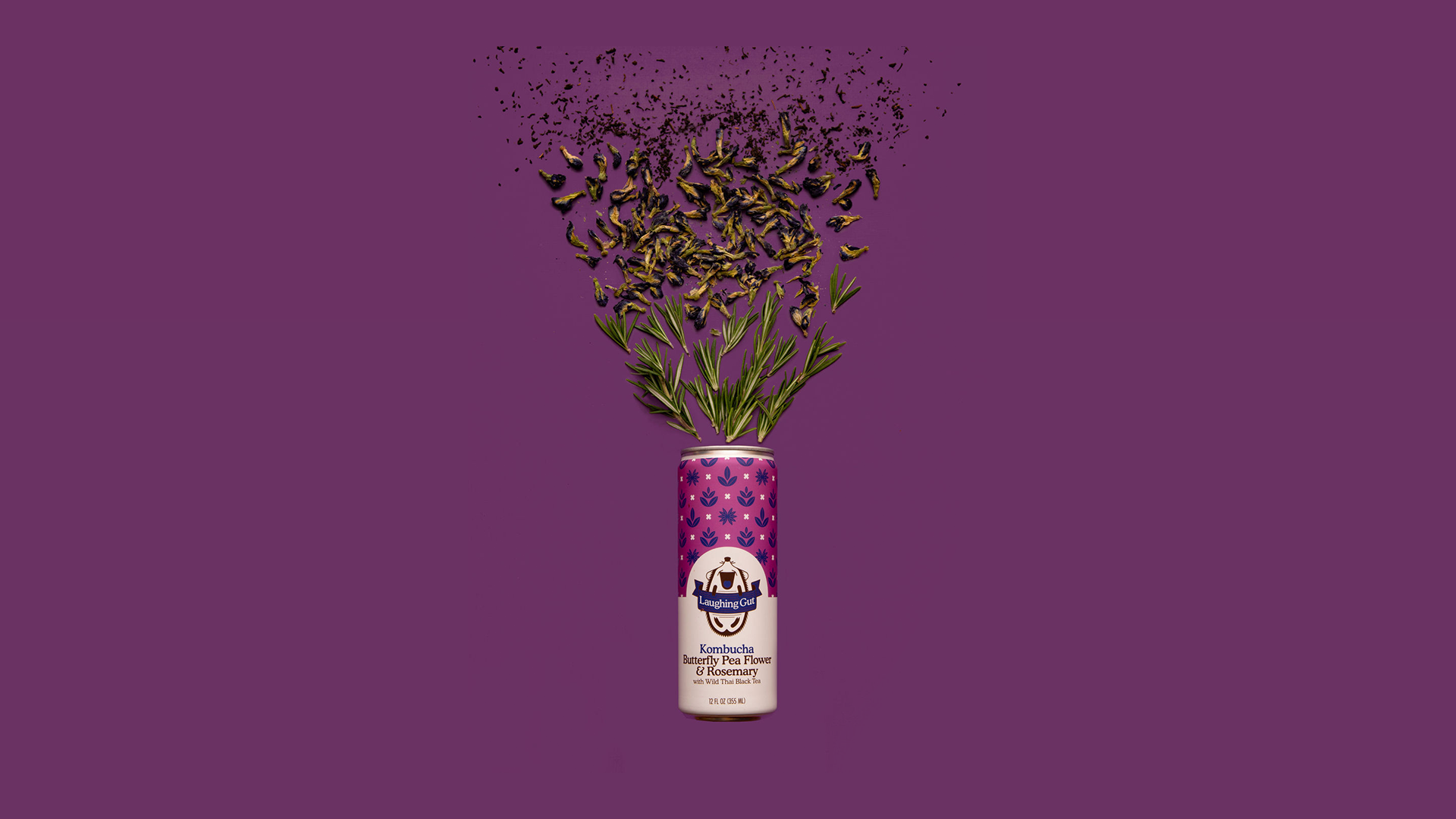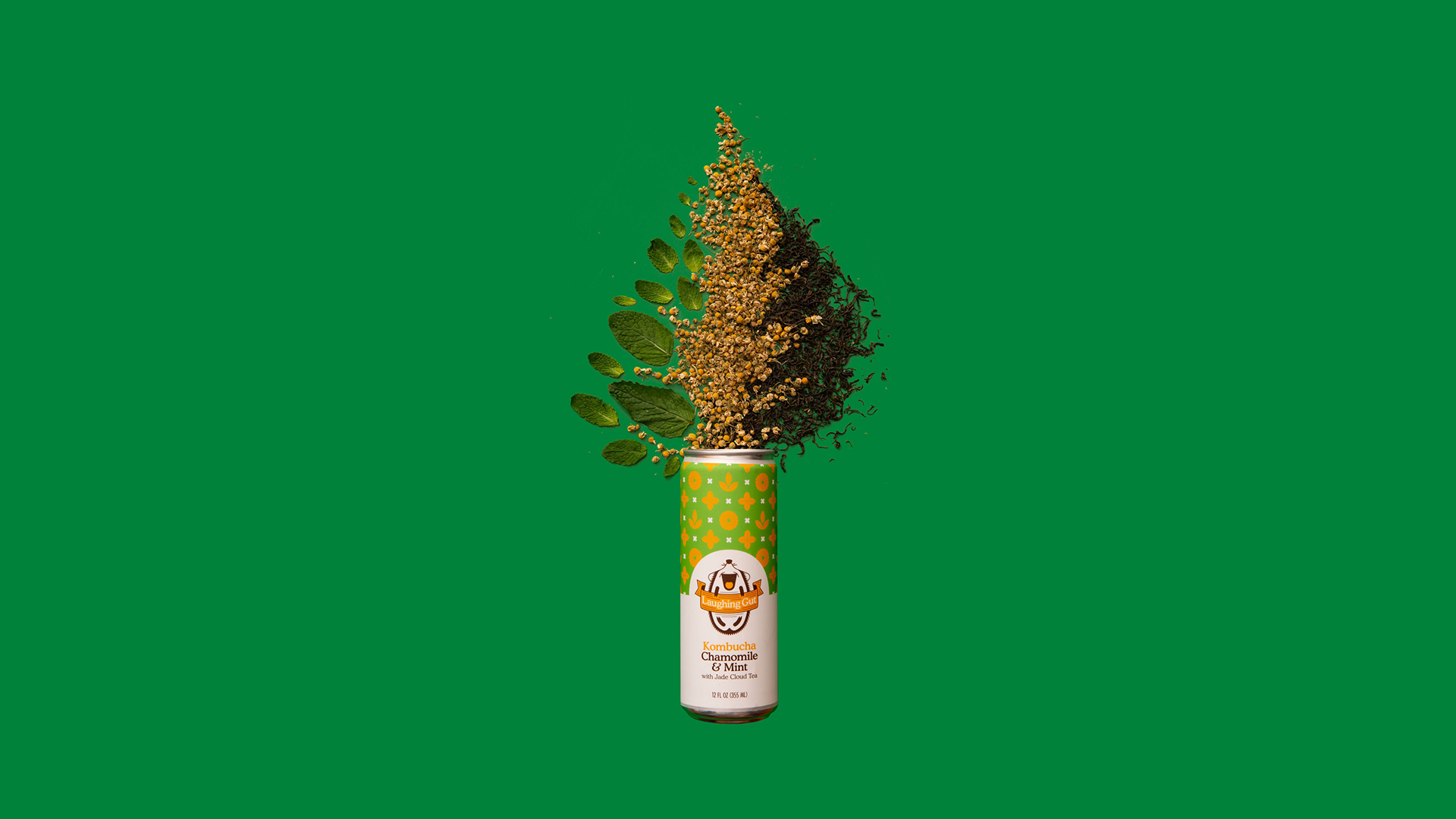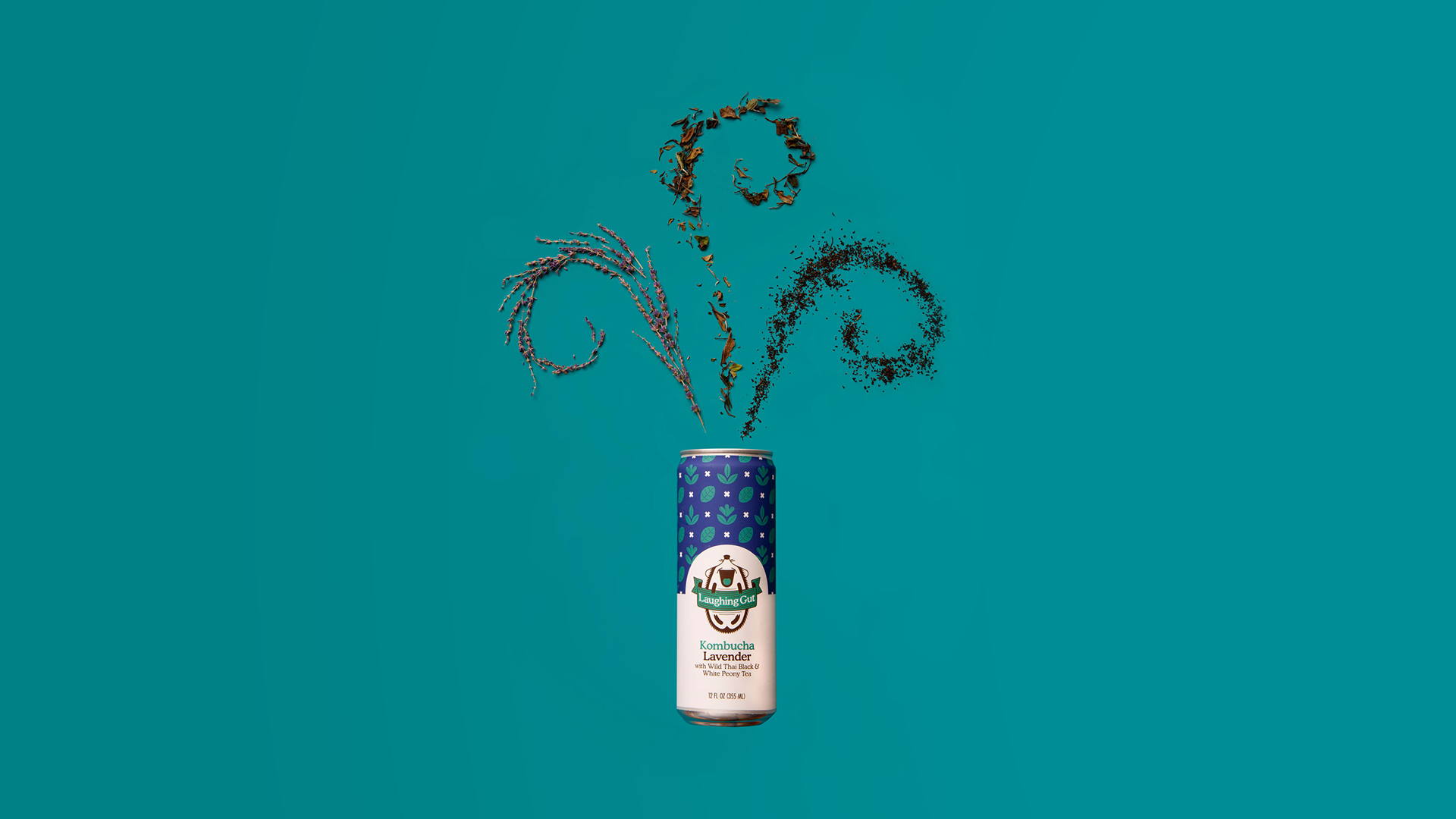
Looking for our kombucha where you shop? Click here to let us know where you would like to see Laughing Gut near you.
The Face Behind the Brews
Meet Adam Benziger
After graduating with a degree in hospitality management, Adam pursued his interest in fermentation science with positions in the craft beverage industry. He starting brewing Kombucha at home due to digestive issues and with the support of his family, launched Laughing Gut in 2018.
Brewing is both an art and a science. As with any recipe, there are basic techniques and rules to follow, but each brewer adds their own unique spin to differentiate themselves from other Kombucha products on the market. Adam strives to capture the essence of Kombucha without masking its authentic tartness with sweetened fruit juices or too many competing flavors. Our philosophy at Laughing Gut is simple and straightforward: brew a delicious base with a variety of great teas and botanicals –let it naturally ferment– add fresh organic herbs and spices – and gently carbonate.
Laughing Gut’s very own Adam Benziger sits down with Duff McDonald and Matt McButter of How to Tickle Yourself Podcast to talk all things kombucha.
Where to Find Us
Dutchess County
Nature's Pantry
small directionsBeacon Natural Market
small directionsEmy Delights & Bites
small directionsBlondie's Bagels and Bait
small directionsCrafted Kup
small directionsTaste NY @ Todd Hill
small directionsAdams Fairacre Farms
small directions1915 Wine
small directionsCrafted Kup
small directionsThe Poughkeepsie Grind
small directionsSunflower Market
small directionsOmega Institute for Holistic Studies
small directionsLasting Joy Brewery
small directionsNew Jersey
Mom's Organic Market
small directionsBaker Street Market
small directionsGary’s Wine & Marketplace
small directionsOrange County
North Wind Bread Company
small directionsNature’s Pantry
small directionsAdams Fairacre Farms
small directionsRusty Goat Grill
small directionsTompkins County
GreenStar Cooperative
small directionsIthaca Bakery
small directionsIthaca Coffee Company
small directionsUlster County
Accord Market
small directionsAdams Fairacre Farms
small directionsDisgruntled Chef
small directionsMain Course Marketplace
small directionsFAQs
-
Kombucha is a fermented beverage with a long history. The drink originated in Manchuria around 200 BC and was known for its healing properties. It is made with a few simple ingredients: tea, sugar, filtered water, and a bacteria called a SCOBY (Symbiotic Culture of Bacteria & Yeast). The SCOBY eats the sugar, which causes fermentation. Brewing Kombucha is both a science and an art. As with any recipe, there are basic techniques and rules to follow, but each brewer adds their own flavorings and unique spin to differentiate themselves from other Kombucha products on the market.
-
• Keep it raw and organic
• Stay tea focused - high quality whole leaf teas - no tea bags
• Flavor only with herbs and spices; absolutely no added fruit juices or artificial sweeteners
• Use different base teas (green, black, oolong, pu-erh) in all stages of the brewing process
• Incorporate unique tea varieties in each brew: Kukicha Green, Jade Cloud, Thai Black, White Tea, Bao Zhong
• Let the true character of Kombucha shine - ensuring that the flavorings don’t overwhelm the authentic taste. Fermented foods and beverages have a distinct tartness -
Fermentation derives from the Latin word “fermentare”, meaning “to leaven.” An ancient technique of preserving food, it’s a chemical process in which a substance breaks downs into a simpler substance. Yeast and bacteria play a major role in fermentation, breaking down sugars which are converted to ethyl alcohol, organic acids, and probiotics. These probiotics are important in helping to keep the digestive system balanced and well-functioning. Kombucha, beer, wine, kimchi, kefir, sauerkraut, and yogurt all contain live bacteria that act as natural probiotics, but probiotics can also be consumed through nutritional supplements. Many fermented products also contain gut-friendly enzymes that facilitate the breakdown of food.
-
Raw Kombucha is unpasteurized (not heat treated) with naturally occurring probiotics resulting from the fermentation process. Our recipe meet standard requirements for organic foods, containing 95% organic ingredients from farms using no synthetic fertilizers, pesticides, or genetically engineered foods
-
Sugar, or another sugar derivative (honey or maple syrup), is required for the fermentation process. The bacteria (SCOBY) consumes the majority of the sugar, although some residual sugar remains. Laughing Gut adds no additional sweeteners. Our 12 ounce can contains 7 grams of sugar
-
Preparing a cup of tea involves a process called infusion – which simply put, is immersing tea in hot water, either with loose tea or teabags.
Tea bags limit infusion due to their standardized size. To compensate, tea bags are filled with smaller particles of broken tea leaves called “dust” and “fannings”, which increase the infusion rate and result in a fairly consistent cup of tea, but with a one-dimensional flavor profile. Innovative tea merchants use larger bags in unique shapes that allow the tea leaves to expand, thus improving the taste.
Laughing Gut prefers Whole Leaf/Loose Leaf Tea. Favored by tea connoisseurs, it’s the traditional way of steeping tea and yields a more complex, aromatic, and superior tasting experience. Free from the constraints of a tea bag, the tea can expand, resulting in a fuller flavor profile, plus tea amounts can be easily adjusted for flavor and astringency. Whole leaf tea also offers a wider range of flavors and aromas over tea bags. Enjoying a classic cup of whole leaf tea rises to the level of an art form for devoted tea drinkers who engage in special ceremonies and tea rituals – and it’s the only type of tea we use in our Kombucha. -
Tea is the most widely consumed beverage in the world only second to water. On any given day, over 159 million Americans are drinking tea. There are five main tea types – black, green, white, oolong, and pu’erh.
Tea is made of two varieties of the Camellia Senensis - an evergreen plant native to China, Tibet, and northern India. Camellia Sinensis is a small leaf variety growing in the high mountain regions of central China and Japan. Camellia Assamica, a broad leaf variety with dark green leaves and white blossoms, it is found in more tropical climates of Northeast India, the Szechuan and Yunnan provinces of China.
Before reaching the consumer, tea leaves go through a series of steps, including plucking, withering (allows the leaves to wilt and soften), rolling (shapes the leaves and wrings out the juices), oxidizing, and firing (drying). Oxidation occurs when the tea leaves are exposed to oxygen, resulting in the browning of the tea leaves. Encouraging or discouraging this chemical process results in different categories of tea and also creates the flavor and aroma of the tea.
Other contributing factors to the quality and taste of a particular tea include soil, climate and altitude. The tea maker’s essential role is to determine how the leaf is plucked and processed after harvesting, which denotes the type of tea produced.
To note, “herbal teas”, such as Chamomile, Rooibos, and Butterfly Pea Flower are made from infusions of herbs, berries, flowers, and spices and not from the tea plant, so technically they are not teas. They are also known as botanicals or tisanes. -
Laughing Gut is packaged in 12 oz sleek cans, which are taller and more slender than a typical 12 ounce beverage can. Choosing to use cans was a conscious decision based on several factors, including differentiating ourselves from the competition. There are fewer kombucha products in cans than bottles, although the number is steadily growing as brewers learn more about the positive features of cans. The new generation of cans we use have a BPA-free lining, so there is no leeching of chemicals. Other contributing factors for choosing of cans over bottles include:
• Airtight - superior job of sealing and protecting the Kombucha from light
• Lighter, stronger, and less fragile
• Chill Faster
• More portable for outdoor adventures
• Sustainability – metal packaging can be recycled numerous time without loss of performance. A can that is recycled can be put back on a shelf within 60 days.
• Ships faster and easier
-
Choosing a name for any product is a challenge. Fans of Kombucha are by and large health-conscious consumers both knowledgeable and particular about the food and beverages they purchase. Gut health has been at the forefront of research and conversation during the past few years as a crucial element in the well-being of mind and body. We wanted to find a creative way to describe digestive balance and probiotics without being too scientific – and thus Laughing Gut was born with the tag line “your gut will be laughing with each tasty sip.” And our laughing hedgehog logo is sure to encourage a smile.
In the Press









